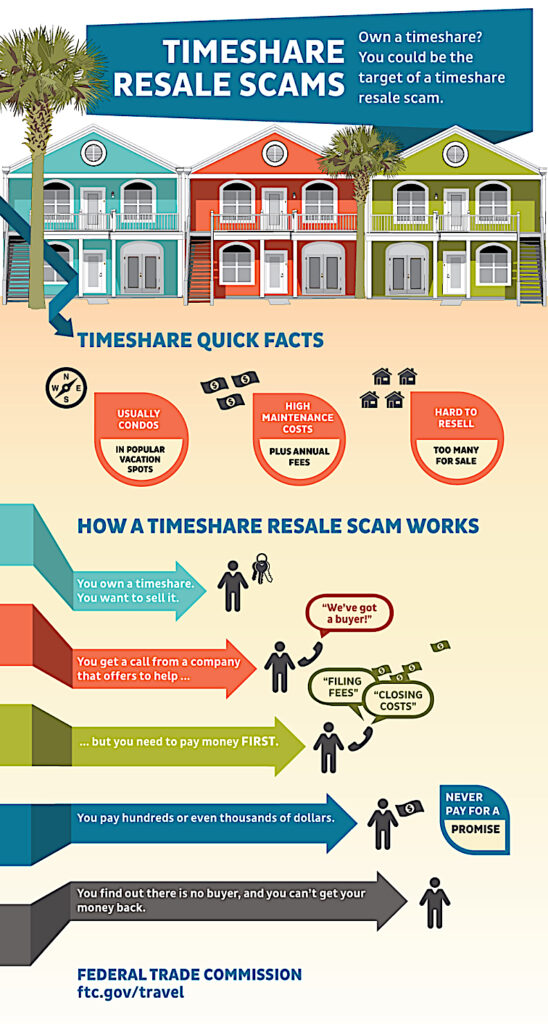 With travel limited by the COVID-19 pandemic, scams involving the sale of timeshares seem to be on the rise. Federal government agencies and officials in some western states are issuing new warnings about scams targeting owners of timeshare properties, primarily in Mexico, following a rash of similar scams in 2019.
With travel limited by the COVID-19 pandemic, scams involving the sale of timeshares seem to be on the rise. Federal government agencies and officials in some western states are issuing new warnings about scams targeting owners of timeshare properties, primarily in Mexico, following a rash of similar scams in 2019.
The FBI Criminal Investigative Division and the Office of Investor Education and Advocacy of the Securities and Exchange Commission (OIEA) issued a notice Sept. 17 warning consumers of an increase in scams that usually involve an unsolicited call from someone claiming to be a representative of a brokerage firm, travel agency, title company, or escrow agent.
According to the alert, the fraudulent callers may:
- Promise to pay timeshare owners a significant sum of money for their timeshare.
- Claim you are entitled to valuable shares of stock in connection with your timeshare that they can liquidate in exchange for an upfront commission.
- Provide official looking documents, including contracts and title paperwork.
- Refer you to convincing websites that may mimic the websites of real companies but contain false information.
- File fraudulent documents with state or local officials and even register with their local Better Business Bureau under false names.
- Pose as stock brokers, and may assume the identities of real registered brokers without the real broker’s knowledge.
All of these actions are an attempt to separate you from your money. They will not successfully sell your timeshare for you.
In some situations, the FBI and OIEA said, fraudsters tell timeshare owners they must pay a tax or fee in order to obtain the promised payments. The fraudsters also may claim that, prior to receiving shares of stock or the money for a timeshare, the timeshare owner needs to open an account at a specified bank and make a deposit to fund the account.
“If you make the deposit, the fraudsters will likely devise additional reasons to demand money in advance of the closing, which never occurs,” the alert explains. “In cases where victims become suspicious and stop sending money to the fraudsters, the perpetrators have contacted the victims, posing as representatives of the Mexican government or a financial institution and demanded an advance fee or tax purportedly to help the victims recover their money.”
Timeshare Scams Resurface in Colorado
One flare up of timeshare scams is in Colorado, where the Division of Real Estate within the state’s Division of Regulatory Agencies reports receiving calls about timeshare scams targeting consumers and real estate brokers.
“In the current version of the scam, timeshare owners are cold-called, mailed or emailed solicitations from an unlicensed business entity purporting to be a full service property management company, real estate brokerage or title and escrow company that lists and sells timeshares,” the announcement says. “Representatives of the company falsely identify themselves to consumers using the names and license numbers of actual Colorado real estate brokers unbeknownst to those brokers. The company claims to be a Colorado company but cites a false physical or virtual office address. When consumers respond to the solicitation, they are directed to forward various up-front transaction fees (often in excess of $5,000) to an out-of-state or out-of-country escrow company. Some consumers have reported losing tens of thousands of dollars.”
Connecticut’s Experience With Timeshare Scams

A Federal Trade Commission graphic on the state Department of Consumer Protection website.
In the fall of 2019, a similar timeshare scam was prominent in Connecticut. The Consumer Protection Commissioner and Office of the Attorney General reported complaints from Connecticut residents about unsolicited calls from individuals offering to buy their timeshares at a substantial profit. The timeshare owners were told had to wire fees and taxes up front to Mexico in order to facilitate the transfer.
“An unsolicited call from someone offering to buy your property is a major red flag. If it sounds too good to be true, it probably is. Hang up the phone, do not send any money,” Attorney General William Tong said at the time.
“If you own a timeshare, don’t entertain a conversation with someone who cold calls you offering to buy it at a good price – it’s almost always a scam,” Consumer Protection Commissioner Michelle H. Seagull added.
Connecticut residents victimized by a scam are advised to contact the Office of the Attorney General at 860-808-5318 or file a complaint online at www.dir.ct.gov/ag/complaint. They may also call the Department of Consumer Protection at 860-713-6300 or file a complaint at https://ct.gov/dcp/complaint.
Tips for Avoiding Being Victimized
in a Timeshare Scam
The FBI and OIEA offer these suggestions for safeguarding yourself:
- Be suspicious of any uninvited offers regarding your timeshare, particularly those that seem “too good to be true.”
- Contact your timeshare resort, developer, or manager, who may be aware of a new or ongoing scam.
- Be extremely cautious if anyone requests that you pay money up-front in order to obtain funds or property to which they claim you are entitled. Also, be skeptical of any request to wire money in connection with your timeshare.
- Be wary of high-pressure tactics, which are often indicative of a scam.
- If you do not know the person with whom you are doing business, be extremely cautious and do extensive due diligence.
- If someone offers you investment products or services, check whether the person or firm is registered with the SEC by using the search tool on Investor.gov.
- Be aware that scammers may be located far from where they pretend to operate, and may use technology to make it appear that they are calling from a different location.
- Hire your own lawyer to review real estate transactions and contracts associated with your timeshare. Be wary of hiring lawyers recommended by third parties who make unsolicited offers, as they may not be impartial.
Cramer & Anderson’s Real Estate Law Team
 The firm has a team of eight highly-experienced attorneys who handle all aspects of residential and commercial real estate law, including timeshares. Contact me using the button below, or any member of our team, and visit the real estate practice area page for links to content on other important real estate-related issues. You can also call our main office at (860) 355-2631 and ask to speak with me or any of our real estate attorneys.
The firm has a team of eight highly-experienced attorneys who handle all aspects of residential and commercial real estate law, including timeshares. Contact me using the button below, or any member of our team, and visit the real estate practice area page for links to content on other important real estate-related issues. You can also call our main office at (860) 355-2631 and ask to speak with me or any of our real estate attorneys.

